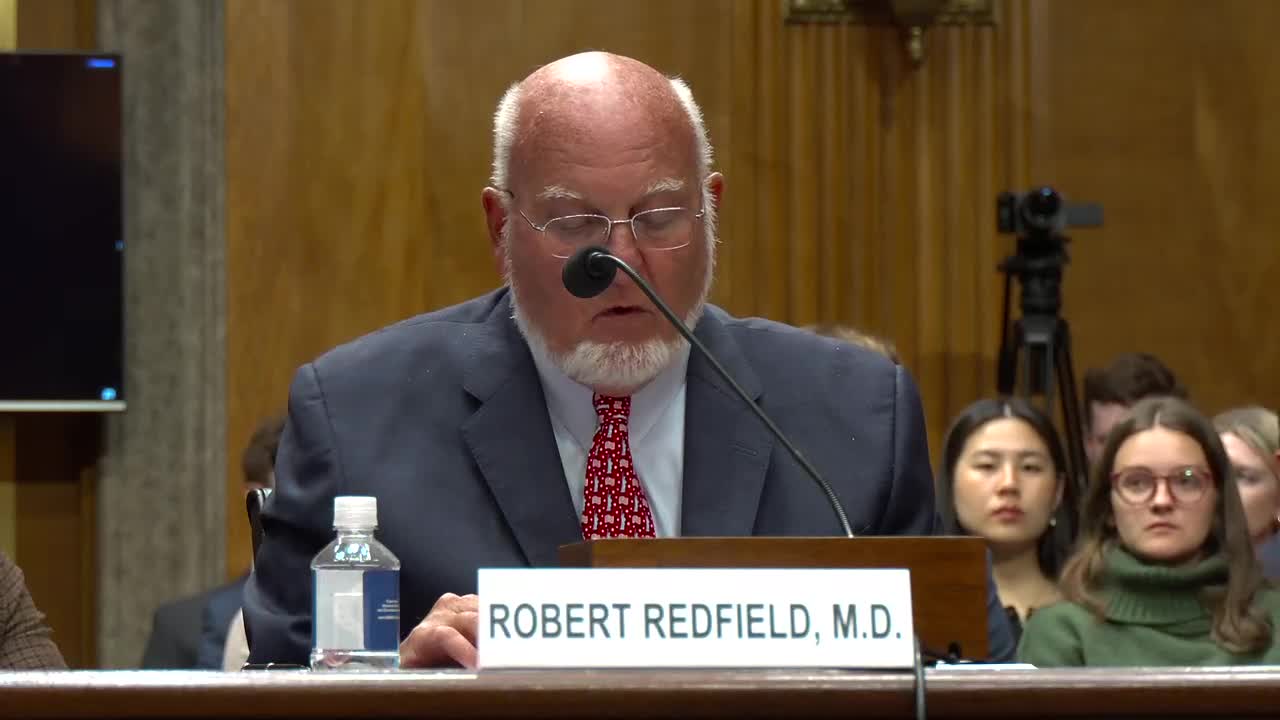Calls for Moratorium on Gain of Function Research Amid Pandemic Risks
July 11, 2024 | Homeland Security and Governmental Affairs: Senate Committee, Standing Committees - House & Senate, Congressional Hearings Compilation

This article was created by AI summarizing key points discussed. AI makes mistakes, so for full details and context, please refer to the video of the full meeting. Please report any errors so we can fix them. Report an error »

In a recent government meeting, concerns surrounding gain-of-function research and its implications for public health and national security were at the forefront of discussions. A key speaker emphasized the belief that such research, intended to advance vaccine development, may have inadvertently contributed to the emergence of COVID-19, resulting in millions of deaths and profound changes to daily life in the United States. The speaker called for a moratorium on gain-of-function research until a broader consensus can be reached on its value and safety, highlighting the need for national security considerations in future funding decisions.
The meeting also featured testimony from Dr. Kevin Esvelt, an associate professor at MIT, who underscored the urgent need for congressional action on biosafety and biosecurity. He pointed out that advancements in synthetic DNA technology have made it alarmingly easy for individuals to create infectious viruses, citing a recent experiment where his team successfully ordered DNA fragments of the 1918 influenza virus from multiple synthesis firms. This incident raised serious questions about the lack of regulation in the DNA synthesis industry, which currently operates without stringent oversight, despite the potential risks involved.
Dr. Esvelt argued that the absence of a centralized regulatory body for biosafety has left significant gaps in the protection against the misuse of synthetic biology. He noted that while the International Gene Synthesis Consortium has called for regulation to prevent the sale of harmful DNA, there is no clear framework to determine which research is legitimate. This situation poses a stark contrast to the regulation of nuclear materials, highlighting the urgent need for updated policies in light of lessons learned from the COVID-19 pandemic.
The discussions at the meeting reflect a growing recognition of the need for comprehensive biosafety measures and the importance of involving a wider community in the debate over gain-of-function research. As the threat of future pandemics looms, the call for legislative action to ensure responsible scientific practices has never been more critical.
The meeting also featured testimony from Dr. Kevin Esvelt, an associate professor at MIT, who underscored the urgent need for congressional action on biosafety and biosecurity. He pointed out that advancements in synthetic DNA technology have made it alarmingly easy for individuals to create infectious viruses, citing a recent experiment where his team successfully ordered DNA fragments of the 1918 influenza virus from multiple synthesis firms. This incident raised serious questions about the lack of regulation in the DNA synthesis industry, which currently operates without stringent oversight, despite the potential risks involved.
Dr. Esvelt argued that the absence of a centralized regulatory body for biosafety has left significant gaps in the protection against the misuse of synthetic biology. He noted that while the International Gene Synthesis Consortium has called for regulation to prevent the sale of harmful DNA, there is no clear framework to determine which research is legitimate. This situation poses a stark contrast to the regulation of nuclear materials, highlighting the urgent need for updated policies in light of lessons learned from the COVID-19 pandemic.
The discussions at the meeting reflect a growing recognition of the need for comprehensive biosafety measures and the importance of involving a wider community in the debate over gain-of-function research. As the threat of future pandemics looms, the call for legislative action to ensure responsible scientific practices has never been more critical.
View full meeting
This article is based on a recent meeting—watch the full video and explore the complete transcript for deeper insights into the discussion.
View full meeting